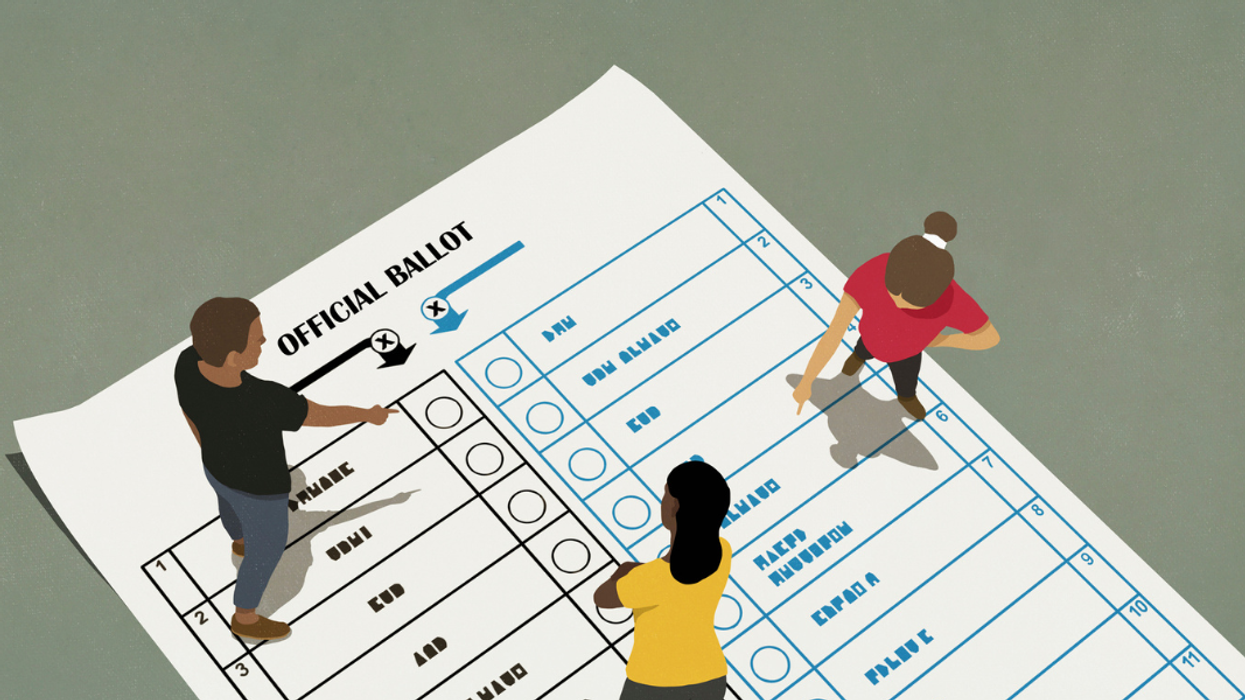On November 16 following Election Day, U.S. Senators Michael Bennet (D-Colo.) and Angus King (I-Maine) reintroduced the Voter Choice Act to support adoption of a ranked choice voting (RCV) model for elections, also known as an “instant runoff.”
The Voter Choice Act provides $40 million in federal matching grants for local and state governments that choose to adopt ranked choice voting, covering up to 50 percent of the implementation cost. The 2021-2022 version of the legislation passed the U.S. House as an amendment to the Protecting our Democracy Act (PODA).
Ranked choice voting (RCV) is a simple but important change to our voting system that gives us more choice and more voice to voters. Instead of agonizing over which candidate to choose, voters rank candidates in order of preference. If no one receives a majority of the vote, the candidate with the least votes is removed, and voters who selected them as their first choice have their votes reallocated to their second choice. The process continues until one candidate has a majority. This way, we no longer need to worry about voting strategically or otherwise “wasting” our votes.
Proponents of RCV believe that candidates are incentivized to build positive, issues-focused campaigns and more motivated to reach communities and voters they might otherwise have ignored.
The Voter Choice Act authorizes $40 million in federal grants to support state and local governments that choose to transition to RCV. Grants would support up to 50 percent of the transition cost, including through the purchase of voting equipment and tabulation software, ballot design, educational materials, and voter outreach.
“The Voter Choice Act is a sensible way to support the fastest-growing nonpartisan voting reform in the country,” said Deb Otis, Director of Research and Policy at FairVote, a nonpartisan organization that advocates for better elections. “Ranked choice voting makes our elections better by giving voters better choices and rewarding candidates who run issues-driven campaigns. While most cities actually save money by using RCV to replace runoffs or two-round contests, the Voter Choice Act will give more Americans the opportunity to try RCV – by helping to offset any voter education and implementation costs with approaches that further boost election security and voter confidence."
“As partisanship continues to harm our democracy and impede progress, we need to make government work for the American people,” said Senator Michael Bennet. “Ranked choice voting gives people more options at the ballot box, increases political competition, eliminates costly runoffs, and rewards candidates who appeal to the broadest swath of voters. Our bill provides vital support for states and local governments that choose to make this important transition.”
Senator Angus King of Maine added that, “In the face of threats that undercut the fundamental right to vote for millions of Americans, we must act to protect our democracy,” said King. “The Voter Choice Act would help communities advance the vast majority of voters’ priorities by instituting ranked choice voting, like the system that Maine already uses for its primary and federal elections. In such a polarized political climate, this bill would force candidates to appeal to a broader swath of their electorate rather than a small, outspoken faction. We must continue working towards improving our great democracy and that begins with restoring faith in our electoral system.”
Ranked choice voting is the fastest-growing nonpartisan voting reform in the nation, and has now grown to over 50 states, counties, and cities home to approximately 16 million Americans across the nation. On Election Day 2023, RCV won in all five cities where it was on the ballot – it has now won 27 city ballot measures in a row.





















